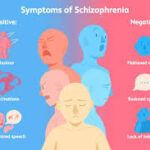A groundbreaking study has unveiled a surprising connection between Alzheimer’s disease and the Herpes Simplex Virus-1 (HSV-1), the virus that causes cold sores. Researchers led by Dr. Or Shemesh found evidence of HSV-1 proteins within the brains of Alzheimer’s patients, suggesting a potential role for the virus in the disease’s development and progression.
The study, published in Cell Reports, revealed that a herpesvirus protein called ICP27 interacts with tau, a protein that becomes toxic in Alzheimer’s. This interaction appears to influence the harmful changes associated with the disease, particularly as it progresses.
Furthermore, researchers observed that the brain’s immune response, while initially beneficial in combating the virus, may contribute to the neurodegeneration seen in Alzheimer’s over time.
These findings have significant implications for Alzheimer’s research and treatment. By understanding how HSV-1 interacts with the brain and influences Alzheimer’s pathology, scientists may be able to develop new therapies that target viral activity or modulate the immune response to slow or even stop the progression of the disease.
Key takeaways:
- HSV-1 proteins found in Alzheimer’s brains: This provides strong evidence for a link between the virus and the disease.
- Interaction between ICP27 and tau: This suggests a direct mechanism by which HSV-1 may contribute to Alzheimer’s pathology.
- Role of the immune response: The study highlights the complex interplay between the virus, the immune system, and the development of Alzheimer’s.
This research opens up exciting new avenues for Alzheimer’s research and offers hope for the development of more effective treatments for this devastating disease.
Disclaimer: This news article is based on the provided information and should not be considered medical advice.












